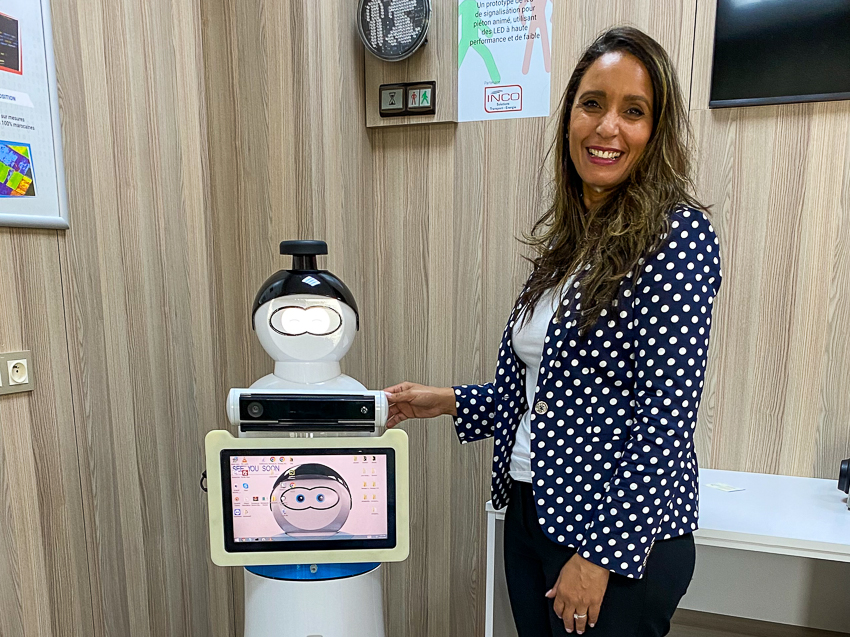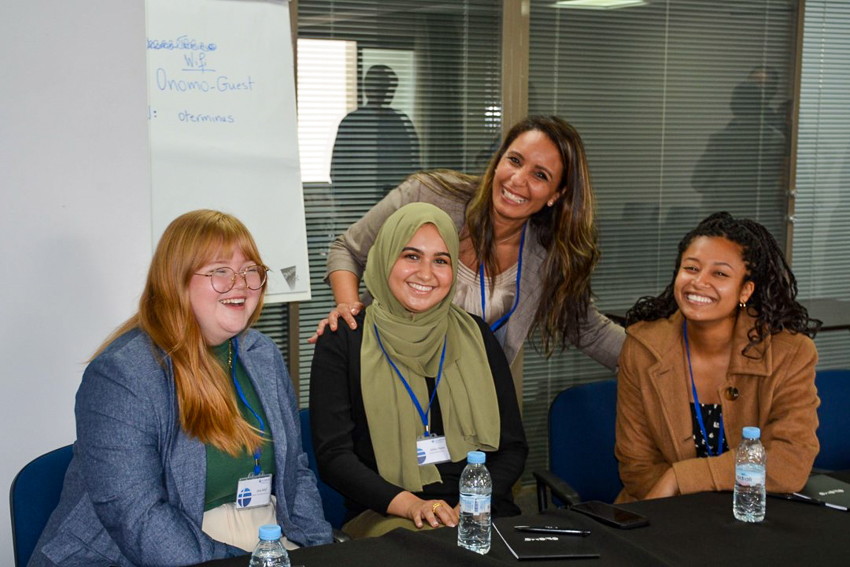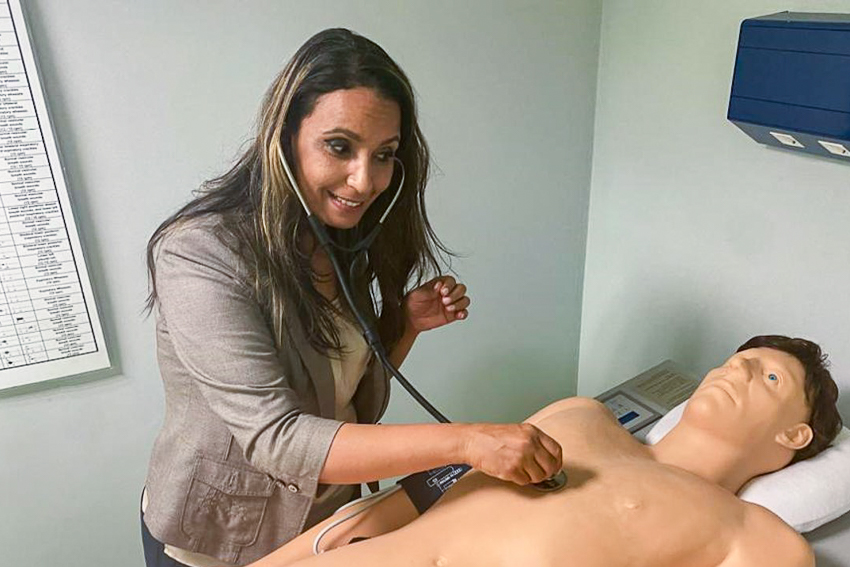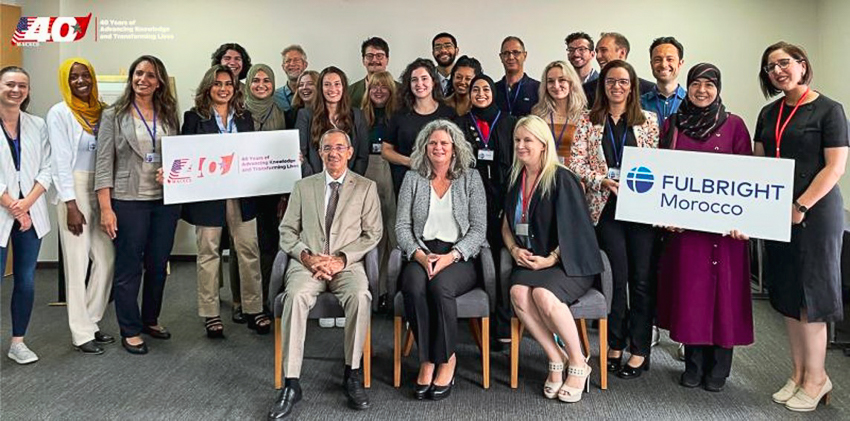
Fulbrighter Dr. Rachida Parks is carrying out groundbreaking research in artificial intelligence and digitization that is paving the way for better healthcare practices in the United States and around the world.
Dr. Parks has been recognized for making significant contributions to digital innovation in healthcare. Her research has been published in leading scholarly journals, including the European Journal of Information Systems and International Journal of Medical Informatics, and she has received prestigious awards, including the Operational Research Society’s Stafford Beer Award and the Diana Forsythe Award by the American Medical Informatics Association (AMIA).
Dr. Parks is a professor of business analytics and information systems with a joint appointment at the Frank H. Netter School of Medicine at Quinnipiac University. She completed her Fulbright in 2023 in Morocco where she received recognition for her work on healthcare analytics and AI.
The following interview has been edited for length and clarity.
How has your Fulbright experience shaped you and your career path?
My Fulbright experience has been deeply transformative both personally and professionally. It allowed me to engage in interdisciplinary collaborative research opportunities at the convergence of AI and healthcare, as well as a cultural bridge between the U.S. and Morocco. Additionally, this experience enabled me to inspire others through my new role as a Fulbright U.S. Scholar Alumni Ambassador. It also provided me with the time and space to develop new theoretical frameworks immersed in the ground realities of Moroccan healthcare. The program provided an unparalleled platform for cultural and academic exchange. It supported a project that was not just technically rigorous, but socially and culturally embedded. Additionally, in the context of healthcare, it reinforced the value of human-centered AI solutions must serve people, not just systems. That philosophy still drives my work today.
On a personal level, Fulbright brought me full circle—back to Morocco, where I was born—allowing me to reconnect as a globally engaged scholar and educator.

Can you tell us about the primary focus of your research and what inspired you to pursue it in the first place?
My research focuses on how digital innovation (e.g., AI) can be effectively integrated into healthcare systems. This focus stems from my prior work in medical informatics, which led to the realization that Morocco—and similar countries—must move beyond technology adoption to develop integrated, strategy-driven analytics ecosystems. The COVID-19 pandemic further emphasized the need to leverage AI and analytics to improve care while taking into consideration the cultural context.
What are some of the most significant breakthroughs or innovations you’ve made in your field?
With interdisciplinary collaborators, including data scientists, medical doctors, and legal scholars, we have developed a theoretical framework that captures how AI in healthcare can be operationalized beyond technology adoption. I was able to establish international research partnerships that extend beyond my Fulbright year, creating a pipeline for collaborative research and curriculum development. The latter supported integrating healthcare AI into business and medical school curricula—creating practical pathways for the next generation of healthcare innovators.

What’s the most exciting aspect of your current work? How do you see it evolving over the next few years?
What excites me most is seeing AI and analytics unlock real changes in global healthcare. I am currently designing AI systems and strategies that support, not replace, human decision-making in healthcare. I see this work shaping policy, education, and global health over the next few years.
Emerging from my Fulbright experience, and my ongoing commitment to knowledge-sharing, is the launch of the Healthcare Digital Convergence (HDC) Chat Series. This podcast brings together global thought leaders – mostly met during my Fulbright – to spotlight groundbreaking initiatives at the intersection of healthcare and digital innovation, including emerging applications of AI. It’s been incredibly rewarding to create a platform where voices from around the world can share insights that are shaping the future of health systems worldwide.
What do you think are the most pressing issues regarding the ethical use of AI?
Bias, privacy, and fair outcomes are major concerns that are at the heart of AI ethics. AI in healthcare must be explainable, transparent, and centered on patient outcomes to ensure AI tools don’t widen differences in health outcomes or compromise sensitive data. Ethical design must be embedded from the start, especially when working in global settings. Keeping humans in the loop is the only way to ensure AI builds trust and advances health for all.
